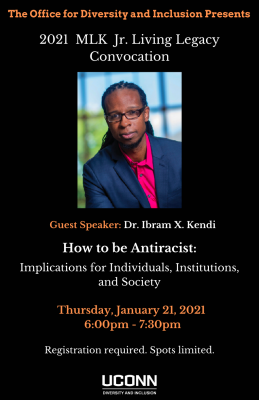Since January 2020, instances of Anti-Asian aggression, bias, and violence have increased drastically across the United States. According to Stop AAPI Hate.pdf, the country’s leading coalition documenting and addressing Anti-Asian hate and discrimination during the COVID-19 Pandemic, people of Asian descent have been caught in cycles of harassment and violence as they have been scapegoated for the COVID-19 pandemic. They have been the targets of online harassment, called a “virus,” spit on, either berated in public or conspicuously avoided, have been refused service, have had their businesses vandalized, have been assaulted, and have even been killed. While the vast majority of these incidents of race-based aggression, bias, and violence are not criminally prosecutable, every single one of them is dehumanizing. Every single one of them is wrong. Every single one of these incidents carries long-term negative impacts for both those individuals and communities targeted by these acts and those individuals and communities who allow these attitudes and behaviors to proliferate.
Unfortunately, such cycles of harassment and violence often do not receive widespread attention in conversations about racial justice. Rather, according to the Southern Poverty Center Law Center’s Learning for Justice Program, since Asian Americans are often perceived as the “model minority,” bias incidents against Asians and Asian Americans are treated as isolated incidents, rather than as systemic racism. As a result, Asian and Asian American feelings are minimized. Their pain is ignored. Institutional racism goes unchallenged. Unfortunately, UConn’s communities are not free from this.
The University of Connecticut Office for Diversity and Inclusion is firmly committed to undoing systemic racism on our campuses and in our community. We are incredibly proud of the work the Asian American Cultural Center (AsACC), Association of Asian American Faculty (AAAF), and the Asian and Asian American Studies Institute (AAASI), have been doing for over thirty years in raising awareness of how systematic racism has impacted the Asian and Asian American communities, as well as in celebrating the valuable contributions these communities have made to UConn. We stand with our Asian and Asian American community members who have been the undeserving recipients of racist aggression, bias, and hatred. We are committed to recognizing their experiences as part of our united project for undoing systematic and institutional racism; we are committed to celebrating their contributions to our community. We are also committed to helping other members of our community recognize how scapegoating Asians and Asian Americans during the COVID-19 pandemic and beyond perpetuates the systematic and institutional racism we are together working to undo.
To that end, we offer the following resources for Asians and Asian Americans as well as to all members of our community, whom we call to be effective allies:
Support those who have been the targets of harassment or violence or who could use support:
SHaW Mental Health Services: https://studenthealth.uconn.edu/mental-health/
Asian American Cultural Center: https://asacc.uconn.edu/organizations/faculty-staff-organizations/
UConn’s Faculty and Staff Associations: https://diversity.uconn.edu/faculty-staff/
BIPOC Resources to Ensure Safety and Support for College Campuses: https://docs.google.com/document/u/6/d/e/2PACX-1vQhZbrdvMIKINN6ZvTIbee1yC9Tkc_YdAE2nhgC1WvB7Nvv1WmvM2W_mK00T3XhOeFA063amdkoqBYu/pub
Mental Wellness Activity Book for Asian Americans: https://static1.squarespace.com/static/5e685e276868922e5ad39f9c/t/5f8e259590e61209aa9d4dbb/1603151258100/IAMNOTAVIRUS+X+UCONN+AAASI+Mental+Health+Work+Book.pdf.pdf
Asian Americans Advancing Justice: https://www.standagainsthatred.org/resources
Hate is a Virus: https://hateisavirus.org/
Stop AAPI Hate: https://stopaapihate.org/
Report a Bias Incident:
InForm
Dean of Students Office
We also invite students and faculty to engage with the Asian American Studies Institute, whether by taking a course or exploring programs and initiatives. A few other AASI resources:
A virtual panel for Thursday, March 18 at 5:00 PM, “Asians in America-Anti-Asian Violence and the Fight against Invisibility.” This event is hosted by the Asian American Cultural Center (AsACC), UConn’s Association for Asian American Faculty and Staff (AAAFI), and the Asian American Studies Institute (AAASI)
UConn History / Asian American Studies Professor Jason Chang’s open-source resources on addressing Coronavirus racism: https://docs.google.com/document/u/0/d/1-DLnAY5r-f4DRLZgndR_Bu47nqHVtAOKem5QRmbz7bg/mobilebasic
Pandemic Anti-Racism Reader: https://asianamerican.uconn.edu/2020/04/15/pandemic-anti-racism-reader/
We stand with our Asian and Asian American community members and we celebrate their contributions to the UConn community. We encourage all members of the UConn community to act as allies and support the Asian and Asian American community. Reach out to your friends and colleagues to see how they are doing. Share the resources referenced above. Help amplify their voices. And if you – or anyone you know – could use some general support during this time, please do not hesitate to seek help.
